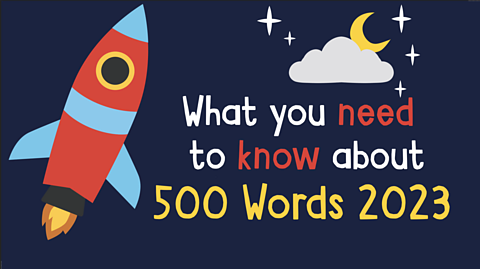
By Miranda McKearney OBE
Co-founder of The Reading Agency and EmpathyLab.
This article was published in June 2022 and updated in June 2023.
Stories are a training ground for understanding other people's emotions.
Empathy is a key life skill needed by every child to learn, thrive and contribute. It’s important for educators to know that empathy can be learned – a recent study has found that only . It’s a skill all of us can develop, at any point in our lives.
On Empathy Day – which took place on 8 June in 2023 – we encourage young people to develop their empathy superpower, and change the world for the good. We offer schools practical ways of harnessing the power of books to build this very special human quality.
How do we develop empathy?
Exciting research developments have shown that in stories and well-drawn book characters, we have a powerful tool at our fingertips to build our empathy skills. Stories are a training ground for understanding other people's emotions.
At the heart of how we develop empathy through reading is the way in which our brain responds to stories. When we hear simple facts, the information only hits the language processing parts of our brain, but things change dramatically when we’re being told a story – many more areas of our brain light up. If the author tells us about some delicious food, our sensory cortex lights up. If we read about motion, the motor cortex is engaged. This is so powerful that your brain tricks you into thinking you are really there in the story.
This means that we experience the character's feelings as if they are real, and can therefore understand and experience the emotions and perspectives of people who are different from us. Books are a springboard for empathy-education work and a wonderful, safe way for children to learn about other people.
Here are my five tips and tools for using reading to build empathy…

1. Choose books that are good for empathy work
Books can help children develop new perspectives, name and share their emotions and inspire them to turn feelings of empathy into action.
You should look for books which:
- Have expertly crafted characters who readers care about and which explore characters' feelings and motivations.
- Challenge tribal thinking through building understanding about different individuals and communities.
- Support the development of key empathy skills: perspective taking (e.g. through different characters’ points of view); emotion recognition/vocabulary; active listening; the ability to put empathy into action.
- Tackle key empathy issues of the day, such as the ongoing war in Ukraine, the cost of living crisis, loneliness, etc.
- Provide insight into other challenging life circumstances like bereavement or bullying.
Empathy Day has an annual collection of , chosen by an expert panel for their empathy-building insights.
2. Focus on characters
Focus in on the characters of a book and their feelings instead of focusing on the plot or technical aspects of the book. Leave plenty of space for discussion and reflection, and keep within the safety of the book – children will process their own feelings and understand others through the characters and their experiences. are accessible 500-word stories written specially for Empathy Day for this purpose by leading children’s writers.
3. Build a language for emotions
In order to share their emotions and understand other people’s, children first need to be able to recognise and name their own. As you talk about books, pick up on new words for feelings used by the author and share what they mean – have fun making the face or modelling the body language that accompanies the feeling.
Unleash your class's creativity by using to explore, identify, and express emotions collectively.
4. Model empathic communication
Listening is a key aspect of empathy, so talk to your students about how important and powerful it is to listen to each other. Empathy Day's challenges us to practise four key aspects of being a good listener: concentration, being still and quiet, checking your understanding and asking questions.
5. Harness author electricity
Children’s authors and illustrators can have an electric effect! The online festival, , features a range of authors taking part in activities including recommending their favourite empathy-boosting books and a nationwide assembly with Joseph Coelho.
łÉČËżěĘÖ Teach also has a collection of short films for primary schools called Bringing Books to Life, featuring famous faces talking about their favourite books.

Raising readers. document
Primary school teacher and reading for pleasure adviser Scott Evans writes about the importance of creating and sustaining a positive reading culture in schools.

łÉČËżěĘÖ 500 Words 2023: Everything you need to know. document
500 Words, the UK’s most successful children’s writing competition, opens on Tuesday 26 September 2023. From how to enter to who our judges are, here's everything you need to know.

Teacher Support Articles. collection
All our articles for teachers in one place, sharing peer-to-peer advice and personal experiences.
